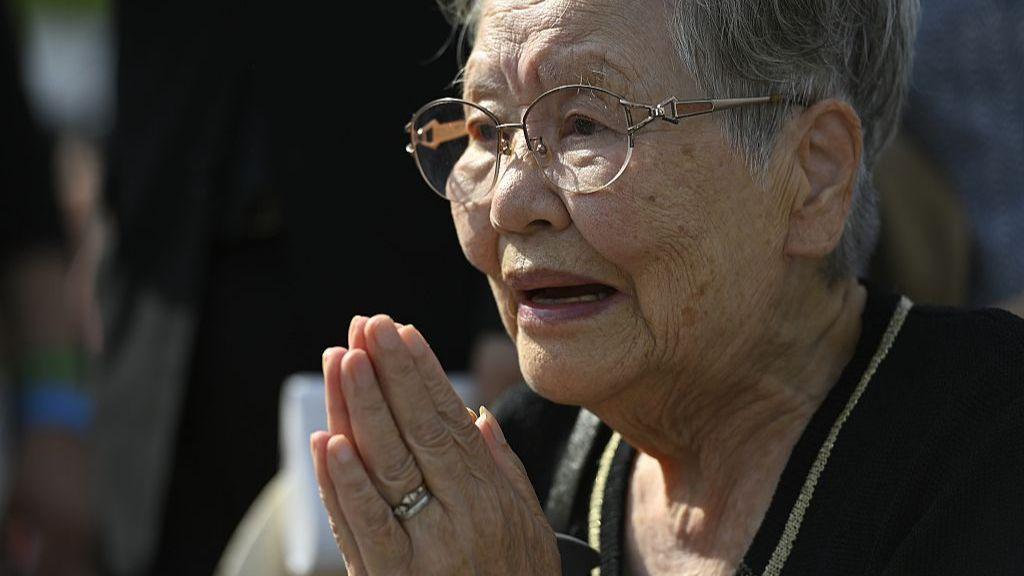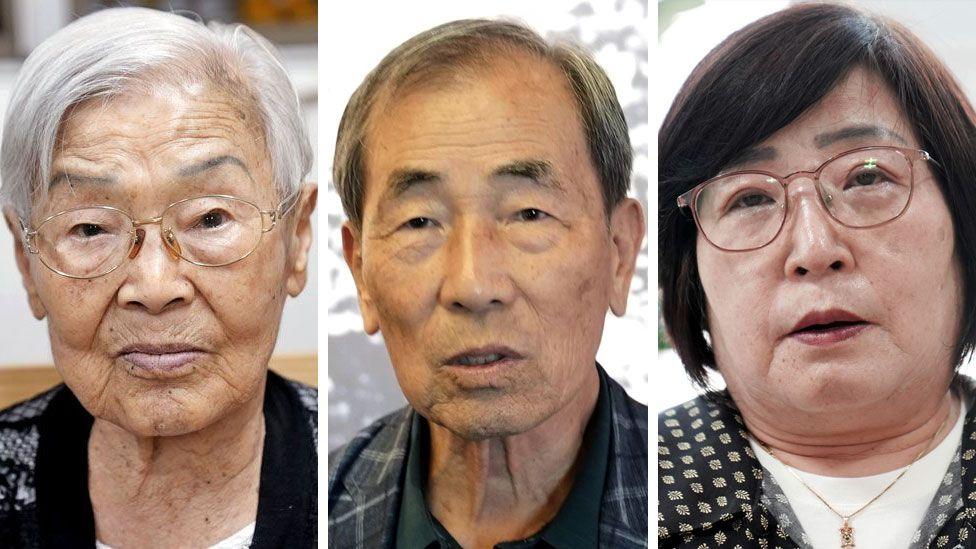Helping rebuild Hiroshima library after atom bomb
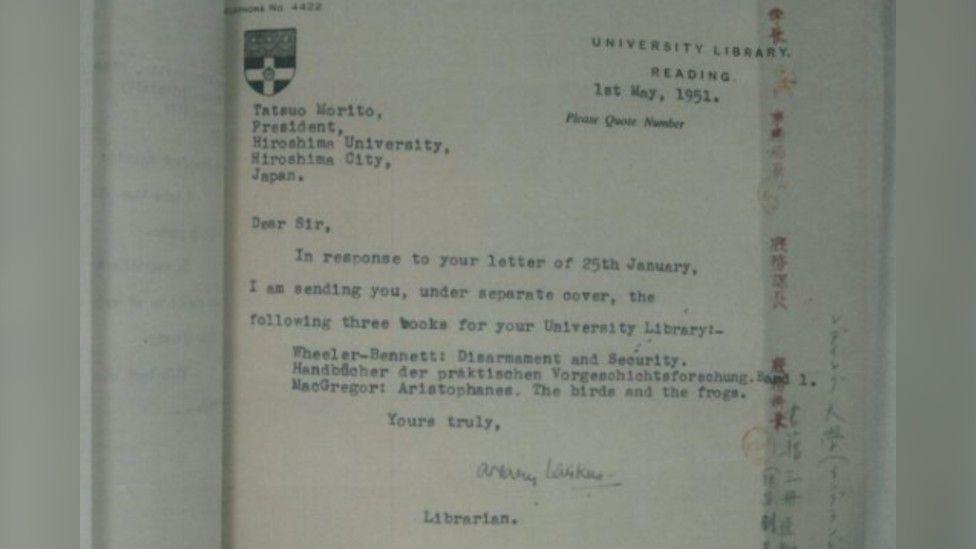
Second World War letters reveal librarian helped rebuild a city's university's library
- Published
A historian has revealed that a university was the first institution to respond to a global call for support after the Japanese city of Hiroshima was destroyed by an American atomic bomb in 1945.
Doctor Jacqui Turner from the University of Reading's department of history led the research into previously unseen documents which remained a secret for 60 years.
In 1951 Hiroshima University President Tatsuo Morito sent letters to universities world-wide, asking for help to creating a peace library, as well as seeds to bring its charred grounds back to life.
Today marks the 80th anniversary of the atomic bomb being dropped on the Japanese city resulting in an estimated 140,000 deaths, and marking the beginning of the end of the Second World War.
Dr Turner explained that a request from the University of Hiroshima found its way to one of Reading's librarians, Mary Kirkus, in 1951.
She said: "It was a request that came from the President of the University of Hiroshima.
"He requested two things, he asked for books which reflected our culture as a university and as a town, and seedlings that reflected our environment."
This was to replenish the library but also to replenish the campus and "turn it green again".
"It was really quite extraordinary that Reading were actually the very first university in the world to respond to that request."
She said the books that Mary sent were "really interesting" they included books from John Wheeler Bennett about disarmament and security in between the wars, a full set of German journals about European history and an Aristophanes about the birds and frogs.
She said: "Those books sound really odd together but they are all about regeneration in some way or another."
She told BBC Radio Berkshire that in 2011 the University received a thank you for what Mary did in 1951.
She said: "We received a peace package, inside were tiles that had been dug up from the riverbed which ran through Hiroshima.
"They were splinters of tiles that had been part of buildings that had been destroyed.
"We had to wait until 2011 because they were so radioactive before that."
Get in touch
Do you have a story BBC Berkshire should cover?
You can follow BBC Berkshire on Facebook, external, X (Twitter), external, or Instagram, external.
Related topics
More like this
- Published6 August
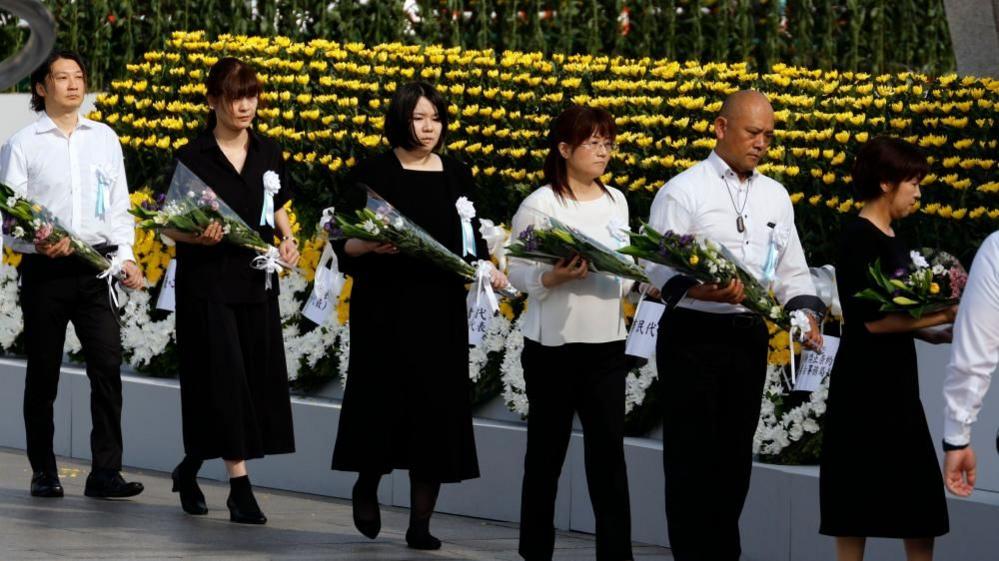
- Published6 August
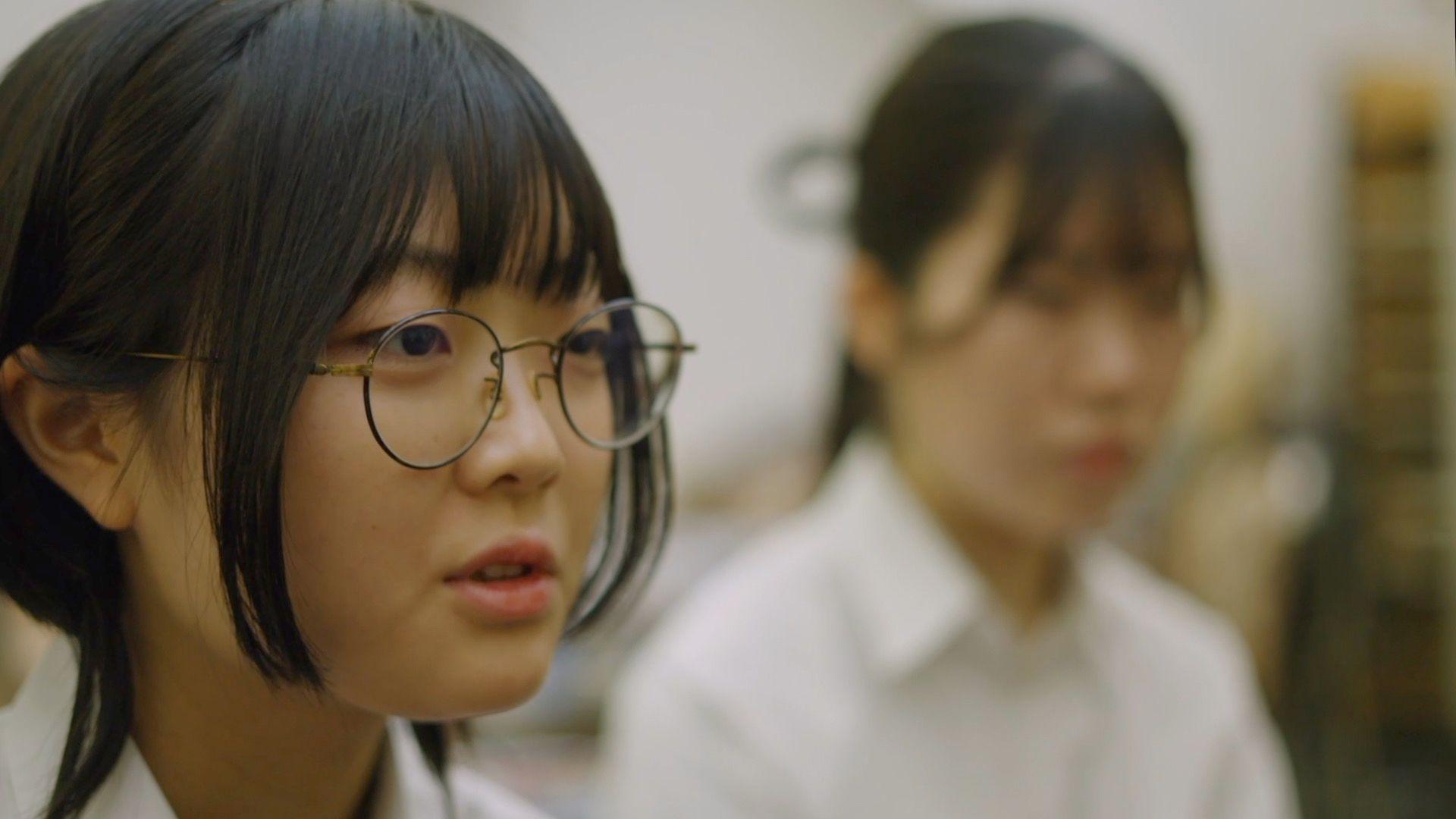
- Published6 August
